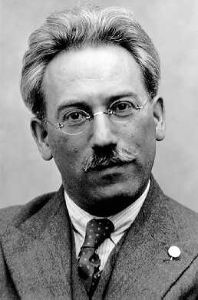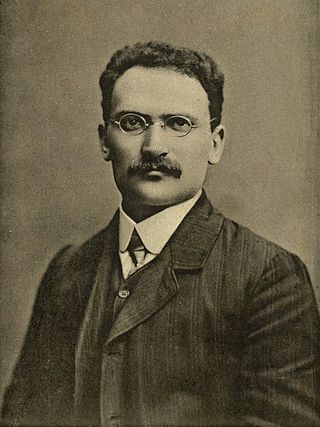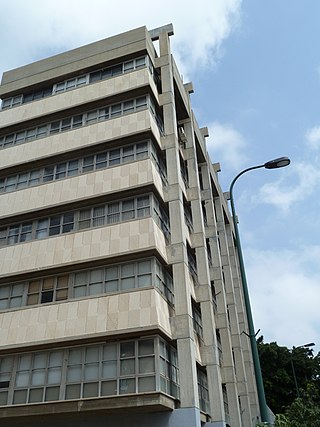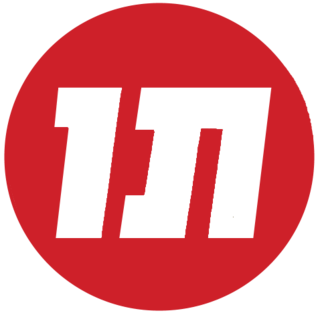Mapai was a democratic socialist political party in Israel, and was the dominant force in Israeli politics until its merger into the modern-day Israeli Labor Party in 1968. During Mapai's time in office, a wide range of progressive reforms were carried out, as characterised by the establishment of a welfare state, providing minimum income, security, and free access to housing subsidies and health and social services.
Jewish Communist Party was a political party in Russia 1919-1922. The party was formed at a conference of communist dissident fractions of the Jewish Social Democratic Labour Party, held in Gomel August 10-15, 1919. Members of the party were nick-named 'EKOP-ists'. It was affiliated to the Jewish Communist Union.
Jewish Communist Union , Komverband was the name taken by the Left World Union of Poalei Zion in 1921. Komverband had members in Russia, Lithuania, Latvia, Austria, Italy, Poland and other countries. In 1922 Komverband shifted its headquarters from Vienna to Danzig, in preparation for a party conference. At that conference the communists were expelled from the organization, and the Left Poalei Zion retook its former shape.
The Jewish Social Democratic Labour Party was a Zionist socialist political party in the Russian Empire and Ukraine. The party was founded in 1906 in Poltava. Members of the party participated in the government of Ukraine in 1917-20. It was part of the international Poalei Zion movement. Due to its position towards the October Revolution and being a strong supporter of the Russian Constituent Assembly, the party was banned from most of Soviets dominated by the RSDLP(b), but was not recognized illegal until 1928.
The Revolutionary Communist League (RCL) or 'Brit Kommunistim Mahapchanit' was a Trotskyist party in Mandatory Palestine in the late 1930s and 1940s.
The Jewish Social Democratic Party "Poale Zion", later renamed Jewish Socialist Workers Party Poale Zion in German Austria in the fall of 1921 and Jewish Communist Party of Austria, was a political party in Austria. The party published Freie Tribune 1919-1921. The party was part of the international Jewish Communist Union, the left wing of the Labour Zionist Poale Zion movement.
Socialist Workers Party was a political party in the British Mandate of Palestine from 1919–1922. Its followers were known as Mopsim.
The Jewish Labour Movement (JLM), known as Poale Zion from 1903 to 2004, is one of the oldest socialist societies affiliated to the UK Labour Party.

The General Jewish Labour Bund in Romania was a Jewish socialist party in Romania, adhering to the political line of the General Jewish Labour Bund. Founded in 1922, shortly after the establishment of Greater Romania, it united Jewish socialists in Bukovina, Bessarabia and the Romanian Old Kingdom. Standing for the lay wing of the Jewish representative movement, the Romanian Bund had atheistic leanings and offered an alternative to the mainstream Jewish organization. Like other Bundist groups, but unlike the Marxist-inspired Poale Zion bodies of Bessarabia, it rejected Zionism.

The General Jewish Labour Party was a Jewish socialist political party in Poland. The party was founded in Lviv in November 1931 by a leftwing group of the General Jewish Labour Bund in Poland in East Galicia, which upheld the idea of dictatorship of the proletariat, a faction of the Poale Zion Left and young left-wing Zionists. The party was aligned with the Communist Party of Poland. The party called for a workers' government, equality for Jewish working people, education in Yiddish language for Jewish children in state schools, abolition of discrimination in the labour market and to struggle against anti-semitism.
Joseph Kruk was an Israeli journalist and a politician in pre-war Poland.

Shlomo Kaplansky was a Labour Zionist politician, who served as the secretary of the World Union of Poalei Zion. During the 1920s he was a leading advocate of a bi-national state in Palestine. Kaplansky was the President of the Technion – Israel Institute of Technology.
The Jewish Communist Workers Youth Union , initially known as the Jewish Socialist Workers Youth Union (Russian: Evreĭskiĭ sotsialisticheskiĭ soiuz rabocheĭi molodezhi, was a Labour Zionist youth organization in Soviet Russia/Soviet Union. The organization was the youth wing of the Jewish Communist Labour Party. The All-Russian Constituent Conference of ESSRM was held March 4–10, 1921 in Moscow. This conference was followed by the first All-Russian Congress of ESSRM, held between August 15–20, 1922 in Moscow. The organization was active until 1928.

The Jewish left consists of Jews who identify with, or support, left-wing or left-liberal causes, consciously as Jews, either as individuals or through organizations. There is no one organization or movement which constitutes the Jewish left, however. Jews have been major forces in the history of the labor movement, the settlement house movement, the women's rights movement, anti-racist and anti-colonialist work, and anti-fascist and anti-capitalist organizations of many forms in Europe, the United States, Australia, Algeria, Iraq, Ethiopia, South Africa, and modern-day Israel. Jews have a history of involvement in anarchism, socialism, Marxism, and Western liberalism. Although the expression "on the left" covers a range of politics, many well-known figures "on the left" have been of Jews who were born into Jewish families and have various degrees of connection to Jewish communities, Jewish culture, Jewish tradition, or the Jewish religion in its many variants.

Poale Zion was a movement of Marxist–Zionist Jewish workers founded in various cities of Poland, Europe and the Russian Empire in about the turn of the 20th century after the Bund rejected Zionism in 1901.

Dov Ber Borochov was a Marxist Zionist and one of the founders of the Labor Zionist movement. He was also a pioneer in the study of the Yiddish language.
Labor Zionism or socialist Zionism refers to the left-wing, socialist variation of Zionism. For many years, it was the most significant tendency among Zionists and Zionist organizations, and was seen as the Zionist sector of the historic Jewish labor movements of Eastern Europe and Central Europe, eventually developing local units in most countries with sizable Jewish populations. Unlike the "political Zionist" tendency founded by Theodor Herzl and advocated by Chaim Weizmann, Labor Zionists did not believe that a Jewish state would be created by simply appealing to the international community or to powerful nations such as the United Kingdom, Germany, or the former Ottoman Empire. Rather, they believed that a Jewish state could only be created through the efforts of the Jewish working class making aliyah to the Land of Israel and raising a country through the creation of a Labor Jewish society with rural kibbutzim and moshavim, and an urban Jewish Proletariat.

The Kibbutz Movement is the largest settlement movement for kibbutzim in Israel. It was formed in 1999 by a partial merger of the United Kibbutz Movement and Kibbutz Artzi and is made up of approximately 230 kibbutzim. It does not include the Religious Kibbutz Movement with its 16 kibbutzim or the two Poalei Agudat Yisrael-affiliated religious kibbutzim.

Ahdut HaAvoda was the name used by a series of political parties. Ahdut HaAvoda in its first incarnation was led by David Ben-Gurion. It was first established during the period of British Mandate and later became part of the Israeli political establishment. It was one of the forerunners of the modern-day Israeli Labor Party.

Der proletarisher gedank was a journal published in Soviet Russia 1919-1927. It was the organ of the Central Committee of the Jewish Social Democratic Labour Party. It was initially published in Russian language under the title Evreiskaya proletarskaya mysl until 1926, before becoming a Yiddish language publication in 1926. Evreiskaya proletarskaya mysl was initially issued from Kiev, then shifting to Kharkov and eventually began to be issued from Moscow. The journal was printed at the Molot print shop in Moscow. The newspaper was one of a handful of non-communist Jewish newspapers allowed to be published legally, albeit under supervision of a censor.








